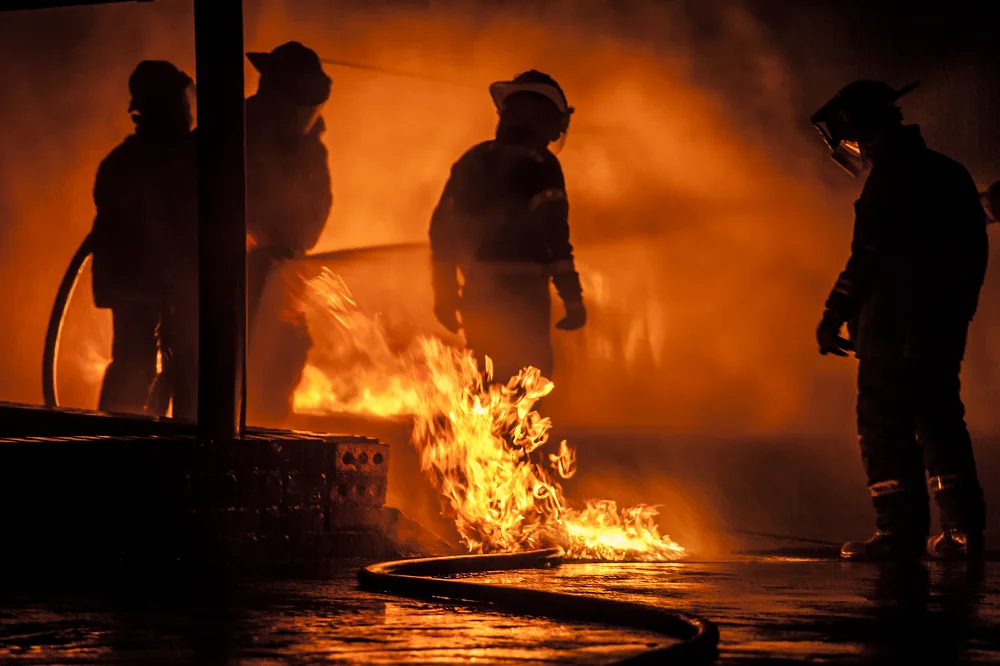Firefighters are developing awareness about the toxins that raise our risk of developing cancer. I never thought I would see the day where we did not gear up before leaving the firehouse for a fire, but clean cab initiatives are in place to keep these toxins out of the passenger compartment of apparatus. Some departments are monitoring for Hydrogen Cyanide post fire, and members are wearing masks during overhaul, aware that off gassing is raising the cancer threat level. Charcoal soap is becoming more prevalent in showers to aid in the detox process after incidents. There is even a video circulating of a European firefighter that doffs his gear right down to his shorts, on scene, like a HazMat decon.
Equally as toxic to our bodies are the traumatic scenes that play out daily throughout our career. The average American will see four or five traumatic incidents in a lifetime. Firefighters working in busier communities could see that in a bad shift. Here are five practical steps that firefighters can take to build resilience and defend themselves against Post Traumatic Stress Disorder in 2023.
- Establish Relationships: Firefighters need the ability to unload trauma and we cannot always bring the subject or material into our living rooms. We acknowledge that exclusively unpacking our experiences with our spouses and partners is not practical or healthy for the relationship. Having that person, or group, who we can call after a traumatic incident is valuable. Have an agreement in place including a verbal cue that signals to others you need to process what you just experienced.
- Keep a Counselor on Speed Dial: Of vital importance is having and maintaining a relationship with a counselor that speaks “fireman.” Counselors are a lot like boots. Some fit great and we keep them. Others are uncomfortable and we need to shelf them. But we need a good pair of fire boots to survive this job, similar to needing a good counselor who understands us. Entering a crisis is the wrong time to look for a counselor hoping to find a good fit. The American mental health care system is insufficient, and it may be common to find waitlists for counselors. The International Association of Firefighters Center of Excellence can help with vetted lists, as may state unions.
- Practice Meditation and Yoga: I have studied and found there are two effective interventions for managing job related stress and trauma. EMDR (Eye Movement Desensitization and Reprocessing) has great efficacy for PTSD. Building a practice based on Eastern philosophies of meditation and movement is the other one. EMDR requires a specialized counselor whereas Yoga and meditation practices need only you and a quiet space. Recently, mindfulness meditation went head-to-head in a study with popular anxiolytics (anti-anxiety medication), and was shown to be as effective or more. Disciplines like Yoga and Tai Chi help us to connect to our bodies which may be difficult after years of trauma and job stress. I hear the groans from here. I know we all have ADHD which is why we can’t sit still, hence the reason we entered the fire service in the first place. Rome wasn’t built in a day, and a marathon begins with one mile. Try ten minutes of meditation per day, and see what happens after a month. There are great resources on YouTube to get you started. Search “mindfulness meditation” and see where it takes you.
- Exercise: We all know the associated physical health benefits of exercise, but did you know daily exercise helps to build mental resilience as well? The good news is you don’t have to be a CrossFit athlete or powerlifter to enjoy the mental health benefits. Brisk walking has been shown in studies to help reduce stress and anxiety. Grab your truck radio and set up a course around quarters. Consider taking the entire company to a serene location in your first due and walk in the view of the public. Even a course inside of the station can serve as a track for brisk walking. Just get up and establish a daily routine, and notice the reduction in stress with a side of cardiovascular improvement.
- Tend Your Garden: It would be reasonable to think that if your personal life was stressful, it would complicate traumatic stress experienced on the job. The cumulative nature of stress across all areas of life is a threat. Working to manage the amount of stress you experience away from the job will provide a resilient layer against PTSD. Work to iron out marital conflicts and maintain healthy relationships. Many firefighters work copious amounts of overtime and / or second jobs. Create a healthy work-life balance and establish intentional and regularly scheduled recreational periods everyday.
- Know Your Enemy: Every year I receive OSHA mandated Communicable Disease Training despite never having met anyone in the fire service who has had a disease communicated to them on the job. Perhaps this proves the effectiveness of the annual training. If our departments will not mandate healthy awareness of the fastest growing threat to our brothers and sisters, we must take the time to study and understand the subject. Understanding the signs and symptoms of acute stress and post-traumatic stress are as valuable as recognizing the signs of flashover. If we don’t have a healthy awareness, both could really burn us in the end. Understanding the signs of PTSD keeps us safe and keeps our brothers and sisters safe as well.
During the course of a career in the fire service, members will experience traumatic events. We should begin training our members on how to protect against PTSD the day we hand out the helmets and boots in the academy. With under reporting of suicide by fire service members, it stands to argue we lose way more firefighters to suicide than flashovers. If we spend an hour in a flashover simulator, how much time do you think we should spend understanding PTSD and building resilience?
A professional counselor that works with first responders at Trinity Family Counseling can help you unload the stress associated with trauma events and maintain your mental health and resilience.



